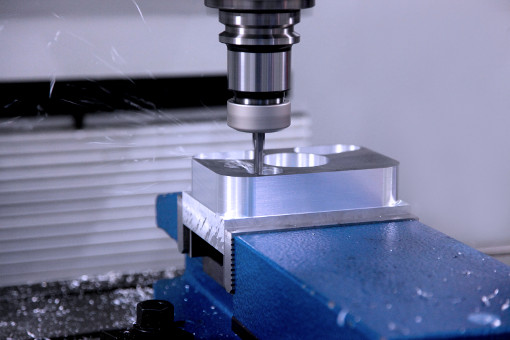Manufacturing
Sample Use Case: Small Factory
Congratulations! As the owner or manager of a small- to mid-sized factory, you have just won your first aerospace contract to fabricate small aircraft components at your facility, for delivery to your client’s main assembly plant.
The contract includes a clause requiring you to have a formal Foreign Object Debris/Damage (FOD) or Foreign Object Elimination (FOE) program in place before commencing work.
Whether it’s termed FOD or FOE, for your purposes it means the same thing; they want to make sure that none of your people drop a loose wing nut into the product housing, spill a few drops of solvent onto a critical piece of plastic, or damage a circuit board via electrostatic discharge.
Suggested Resources
Check out our articles on Controlling FOD In A Manufacturing Facility or How to Set Up a FOD Program for more information.

You have always prided yourself on keeping a generally clean shop, but now you must organize and document it to aerospace industry QA standards. Plus, the client plans to inspect your facility at least once during the lifetime of the contract.
So, you contact The FOD Control Corporation and discuss the matter with us. Together we develop a plan following these factory management tips.
Creating FOD Zones in a Small Factory
To identify workstations that are especially sensitive to potential FOD incidents (e.g. where product housings remain open or finished products are packaged for shipping), you:
- Paint boundary lines on the floor to identify these areas;
- Attach large metal warning signs to the walls indicating the level of FOD awareness required of personnel while in those areas;
- Post a copy of FOD-related procedures at all relevant workstations.
Controlling FOD in a Small Factory
To control and manage the movement of debris and potential debris within these areas you:
- Place labeled, lidded, oily-waste certified FOD Cans on each workbench and at strategic foot-traffic points, to better facilitate immediate disposal of trash, worn-out small parts, found debris and other disposable foreign objects;
- Develop a check-in, check-out inventory procedure for anyone entering a FOD-sensitive area with tools, parts or personal items (e.g. pens, keys or coins);
- As needed, distribute portable shadow tool boxes, parts organizers and/or ESD (electrostatic discharge) containers to anyone who handles small objects.
Improve Awareness
Hold an all-hands safety meeting, where you:
- Show a FOD awareness slideshow or video;
- Discuss a simple set of procedures for keeping work areas clean;
- Emphasize that the company has a contractual requirement to maintain a FOD-free facility;
- Remind everyone that a clean shop is a safe shop and a safe shop is a happy shop.
Subsequently, from time to time you bring up FOD prevention at regularly scheduled staff meetings or during new-employee orientation.

